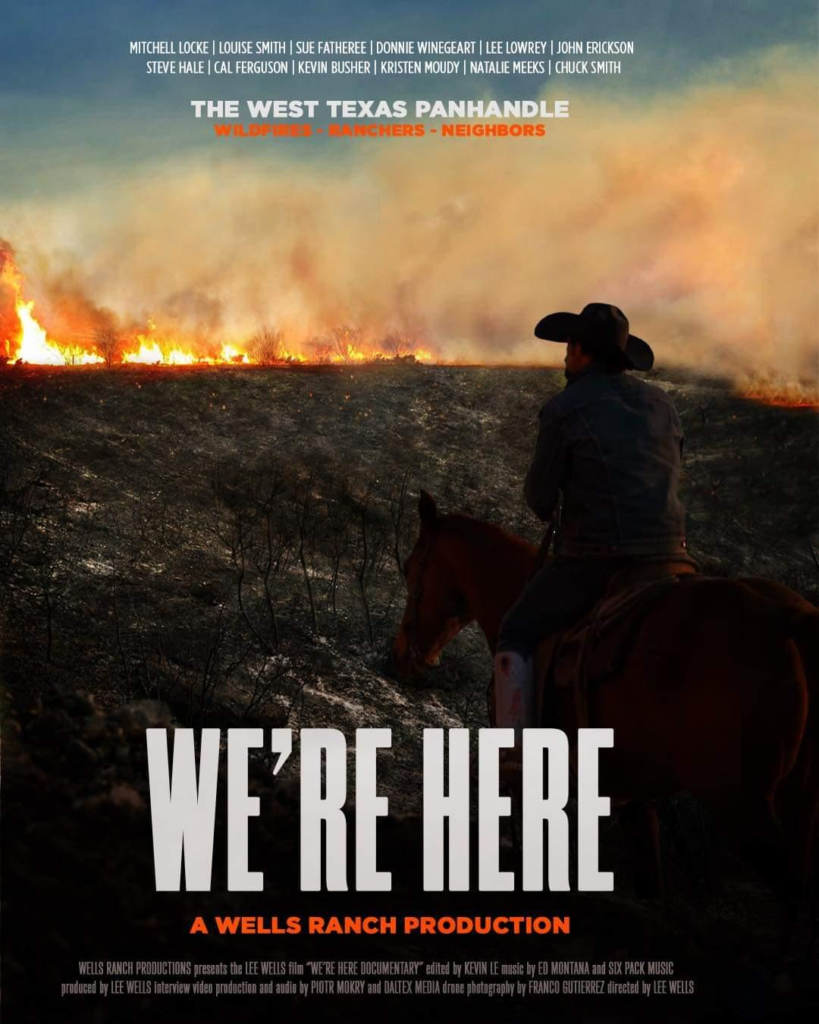I come from the dirt roads of West Texas.
I also like to say I come from the “windy” dirt roads of West Texas.
It was Tuesday morning and as I pulled onto that dirt road I noticed how strong the wind was before the sun had even broken the horizon.
In my memory- in the back of my mind- I remember the first time I told someone what it was like coming from where I come from.
I use to tell my younger buddies in Austin that coming from West Texas was like being in that movie “The Last Picture Show.”
“It’s like the movie. The wind has a way of making it feel like your life is in black and white.”
The wind howling through the window seals, the wind creating a low vibration of energy, the wind orchestrating a mood that feels like your life is a classic movie from days gone by,
“From the sound of that damn persistent wind, well with it, you lose a little color of your spirit.”
It can get depressing…..
The Texas Panhandle can be harsh, or it can be pure paradise—it all depends on how the wind is blowing. One thing’s for sure: you can almost always smell cow shit, and again, it usually depends on the wind. In late winter and early spring, the wind blows from the southwest, and today was no different.
I was on my way to pick up Justin Trammell. My partner at the Rancher’s Storefront and co-owner with his family of Panhandle Meats located within and outside of my hometown of Canyon, Texas.
We were on our way to a one day local community food summit being held in Tulia, Texas. About 40 miles south of where Justin and I grew up is another small Texas town where a group of pioneering local community food producers were meeting. The one day food summit was being held by the Ogallala Commons.
Justin had actually been a recipient of a scholarship and internship that is stewarded by the OC. For years he has been collaborating, advising and innovating with Daryl, the founder of the OC. Each month and each year there are events, seminars, conferences that are held in the region of the Ogallala Aquifer.
Our drive that day consisted of talking about my trip that I had just returned from: I had been in Asia for over 2 months researching and looking at the global cattle markets and aggregate distribution lines our domestic beef travels upon when it leaves those dirt roads of West Texas. They have become part of a global distribution system that very few American consumers and ranchers fully understand.
We talked about the cattle industry, our plans for 2024 for the storefront, the herds we are building, we talked about land values and if we wanted to go check out some acreage that was on the market. The price had dropped because the well was recently capped (at least that’s my figuring). This land was commodity land that for the last 50 yrs has been growing commodity grains and the commodity grains were farmed using a “pivot” irrigation system. The water that has been used for irrigation has come from the Ogallala Aquifer. That aquifer is drying up, and the land values are decreasing because of this fact.
There is a form of asset reallocation starting to happen here in the panhandle. I have seen this before as a child during the 80’s and during “Farm Aid,” the financial liquidity/credit crisis that happened in US Agriculture. Land that once had value in a certain integrated system now has been devalued, but around the corner there is a new value being created, thus the asset reallocation. More on this as this series evolves.
Today, without Justin or me realizing it, a new asset reallocation was unfolding. Where it’s headed, we’re not quite sure yet—only time and the wind will tell. The food summit that day covered everything I’ve always known and been taught: how to steward food locally, from the very soil you come from. These local food summits are incredibly valuable, and I believe if the general public had better exposure to the content and food intelligence shared, more people would be supporting and attending
The day of the Smokehouse Creek fire (that was now burning) was one of those days you like to stay in and work from the safety of your computer screen or at least behind those windows that protect you from the lack of color of a windy day.
I started driving those dirt roads of West Texas even before I was 10 yrs old. When you drive in the Texas Panhandle you see for miles and miles. That day, what I saw was nothing I had ever seen before.
On the horizon ahead was an orchestration and a production that no one saw coming.
The new horizon actually came from a bold statement.
That bold statement was actually just a blank canvas.
The whisper that now is stamped into the history of time forever is…





0 Comments